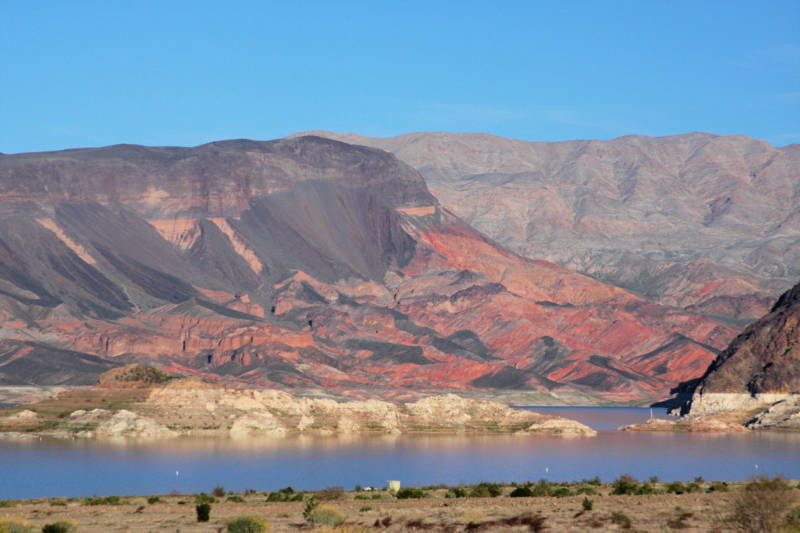Western states can finally more forward with a landmark deal to distribute the dwindling supply of water from the Colorado River.
After several years of haggling amid a prolonged drought, California and six other states have agreed to a water-management plan for the river, which supplies about 40 million people.
The federal government had told the states that if they didn’t come to an agreeement on their own, it would step in with its own plan.
Now, Arizona, California, Colorado, Nevada, New Mexico, Utah and Wyoming are pushing for federal legislation to implement the plan.
Under the agreements, states voluntarily would give up water to keep Lake Mead on the Arizona-Nevada border and Lake Powell upstream on the Arizona-Utah border from crashing.
The push for federal legislation comes after the Colorado River Board of California voted Monday to move ahead without a water agency that has the largest entitlement to the river’s water.
The Imperial Irrigation District was written out of California’s plan when another powerful water agency, the Metropolitan Water District, pledged to contribute most of the state’s voluntary water cuts.
Imperial had said it would not commit to the drought plan unless it secured $200 million in federal funding to help restore a massive, briny lake southeast of Los Angeles known as the Salton Sea.
“IID has one agenda, to be part of a DCP that treats the Salton Sea with the dignity and due consideration it deserves, not as its first casualty,” Imperial board President Erik Ortega said.
Another Imperial official used less diplomatic language. From the Arizona Republic:
During a meeting on the shore of the Salton Sea on Tuesday, IID officials lashed out at those gathering to sign on without them in Arizona.
“I have six grandchildren who live on the Salton Sea and five of them have asthma. On behalf of them I say, ‘Damn them. Damn them,’” said IID board member Jim Hanks.
“As we gather here today on the shore of the Salton Sea strewn with bleached bones, bird carcasses and a growing shoreline,” Hanks said, “and as champagne is being prepared for debauched self-congratulation in Phoenix, remember this: The IID is the elephant in the room on the Colorado River as we move forward. And like the elephant, our memory and rage is long.”
The U.S. Bureau of Reclamation had given states until Tuesday to submit comments on what to do next after California and Arizona failed to meet federal deadlines to wrap up the drought plans.
That process will be stopped now that California is on board. Arizona says it doesn’t expect its remaining work to delay implementation of the drought plan.
The states’ plans are meant to supplement existing guidelines that dictate water deliveries to Arizona, Nevada and California. The Bureau of Reclamation previously predicted a more than 50 percent chance that Arizona and Nevada would not get their full allocations of water in 2020.
The latest study shows a shortage might be averted. But officials say one good year of snowpack won’t reduce long-term risks on the river.
Lauren Sommer and Jon Brooks of KQED and Felicia Fonseca of Associated Press contributed to this post.

